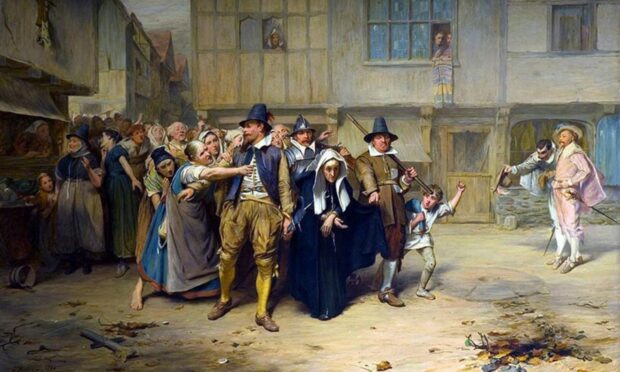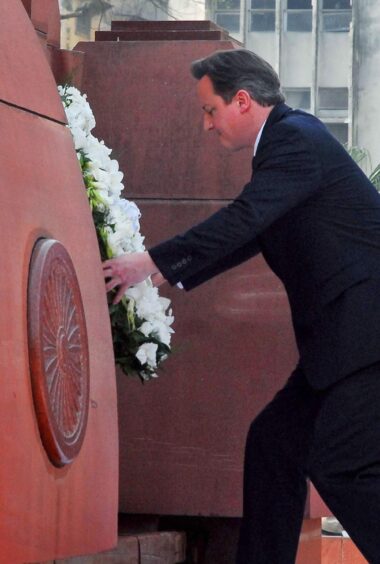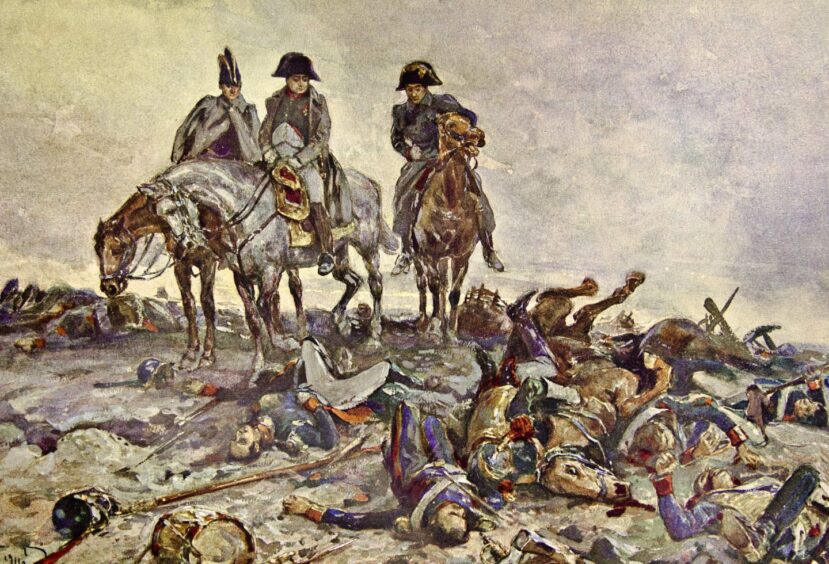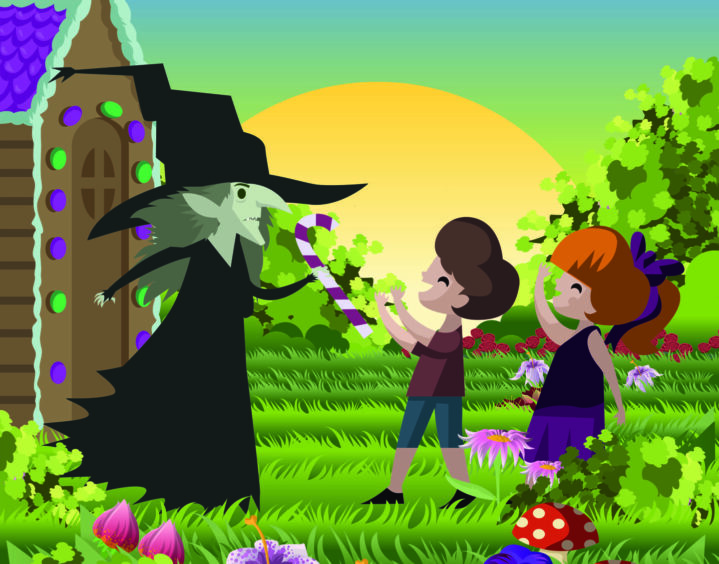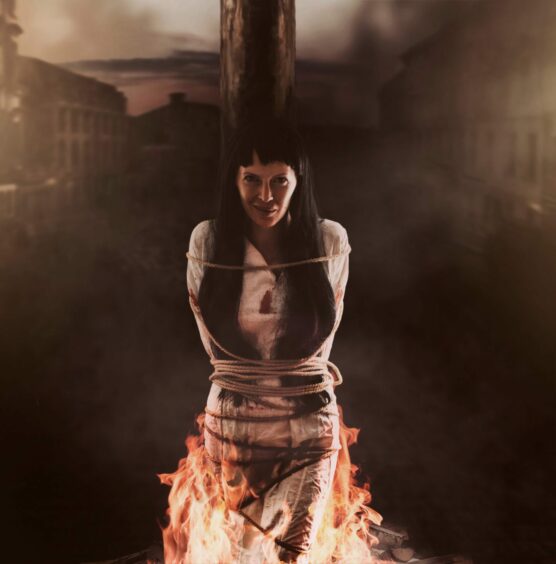I wrote a column a couple of years back entitled “Should we apologise for our colonial past?”
The uncomfortable truth is we, Britain, went into countries, often uninvited, took over, forced our values on the locals, and then looked down our noses at them, claiming that they were uneducated, uncultured and even uncivilised.
Therefore, should we apologise for our colonial past? Our actions in, for example, India, Australia and North America?
“Sorry” is such a small yet immensely powerful word. But once, with an open mind, you start looking into the entire subject of apologising for all the nation’s past wrongs, it’s like untangling a ball of string that never seems to end.
One example is the 1919 massacre at Amritsar, India, carried out by the British. The Queen, in the 1990s, expressed her regret and sadness. But no official apology has ever been given.
Many say we should most definitely apologise. Many others say no, because “it’s just not as straightforward as saying sorry”.
While some Indians welcomed the expression of regret and sadness in the Queen’s statement, others criticised it for being less than an apology.
However, it’s worth noting that the then PM of India, Inder Kumar Gujral, defended the Queen, saying that the Queen herself had not even been born at the time of the events and therefore should not be required to apologise.
Now, that statement by the then Indian PM is my point exactly when it comes to apologising for wrongs that others did.
But let’s say that we did in fact apologise for Amritsar, what then? Where does it stop?
The list is endless. And not just for Britain but numerous countries. Is there a statute of limitations? 50 years? 100 years? 500? 2,000?
You should read the book Jerusalem, by Simon Montefiore. Over many hundreds of years that city suffered utter brutality on a scale you cannot imagine, systematic killing by everyone against everyone.
Should today’s average Muslim, Jew or Christian apologise for that? No, they weren’t there.
For example, should Macron apologise for the Napoleonic Wars? Should current-day Mongolia apologise for Genghis Khan? Should Spain apologise for Mexico?
What about Africa? Many European nations would have to hang their heads in shame and apologise for the “carve up of Africa”.
And who should apologise for Christopher Columbus discovering the new world that led to colonialisation?
However, what about making apologies to groups of people from within our own country?
What about witches?
If you asked the average person what springs to their mind when asked to describe a witch, I’m sure near all would say something along the lines of: broomstick, old hag, warts on face, crooked nose, black hat, black cat. You get the picture.
Stuff of fiction and movies.
So, witches are not real? No, of course they are, and they’re not evil. They do not, as portrayed in tales such as the Grimm Brothers, entice children into homes with gingerbread and sweets.
From what I’ve read, modern-day witches don’t do anything sinister, don’t make sacrifices and don’t worship the so-called devil. They adhere to their own “religion”, celebrate nature and the seasons.
To me, it seems like paganism. I have no problem at all with that.
Seemingly they do cast spells, but only for good, not for evil. Also, many use crystals for healing purposes.
You may think that silly, but think about it – do you ever put bath salts in the tub to ease your stress, or light a candle? That could be seen as your own “self spell” for a bit of self love or healing.
And forget the stereotype I mentioned earlier, ie a witch out of whatever movie you choose to remember – a modern-day witch will often look just like you or me.
On that point, yes, men can be witches, too. I didn’t know that.
You don’t even need to join a specific official group to become one. You just make the decision and adapt your lifestyle accordingly.
Doesn’t seem any different to me from someone deciding to become a follower of any of the mainstream faiths. Each to their own and all that.
What harm could these people ever do? And why would society ever care if someone was a witch?
But we did care. And we were terrified. Why? Fear and ignorance.
Witch hunts, as they were known, took place in numerous countries around the world, but experts claim that Scotland’s execution rate was five times the European average.
“Witches” were hounded, tortured, put on trial and often then executed.
According to the website Witches of Scotland, an estimated 3,837 people, mostly women, were accused of witchcraft in Scotland. Around 2,558 were then executed.
In order to gain a confession, sleep deprivation was used. Also, a ghastly procedure called “pricking” was used at Scotland’s witch trials. The suspect’s skin was pierced with needles and pins. The reasoning was that if the suspect was a witch, she would show a devil’s mark allowing her to not experience pain. Thus, proving she was a witch!
If no mark showed, which I doubt ever did, it just proved that a normal woman had been tortured. Insane behaviour.
How did these accused women defend themselves against such ludicrous charges? It was near impossible, for it has to be pointed out that at the time, women were not even allowed to speak as witnesses in court.
What despicable crimes had these women committed? Nothing basically. Remember, fear and ignorance. These women were mostly not outcasts or lone women, they were usually mothers and family members, often older women.
If a child suddenly died in a family, or an unexplained accident happened, the mob would claim “witchcraft”.
Women were also accused of putting curses on others and collaborating with the “devil”. Then the woman, often poor or with disabilities, was persecuted. The mob claiming that she caused horrible events to happen by her “magic”.
Fear, lack of education and pure ignorance of others and how they peacefully chose to live their lives. These women had done nothing wrong, they were, simply put, “different”, and they were persecuted for being so.
The last recorded executions took place in 1706. After the Scottish and English parliaments merged in 1707, the British parliament in 1736 repelled the Witchcraft Act of 1563.
Sadly, today in some African countries, women are still being persecuted for witchcraft.
Witches of Scotland have been campaigning for a long time. Their goals? An official apology, an official pardon and an official memorial to those who lost their lives in Scotland.
So far, so good. For on March 8 this year, Scotland’s First Minister Nicola Sturgeon offered a formal apology to people accused of witchcraft between the 16th and 18th Centuries.
“Pointless,” I’ve heard some say. “Pandering to political correctness,” I’ve heard others say.
I could not disagree more. I’m no fan of political correctness, and it has to be said I’m not our FM’s biggest fan. However, on this occasion, I think Ms Sturgeon got it absolutely right.
She said: “It was injustice on a colossal scale, driven at least in part by misogyny in its most literal sense – hatred of women.”
Couldn’t have put it better myself.
It’s just a tragedy that it took literally hundreds of years for our “civilised” society to make the apology.
Others may say Nicola should not have apologised, for it was not her fault. See my points made at the start of this column re the British Empire.
Maybe you think Nicola should not have apologised, and offered an official pardon instead?
What a fascinating subject.
I’m looking forward, as always, to hearing your thoughts.
